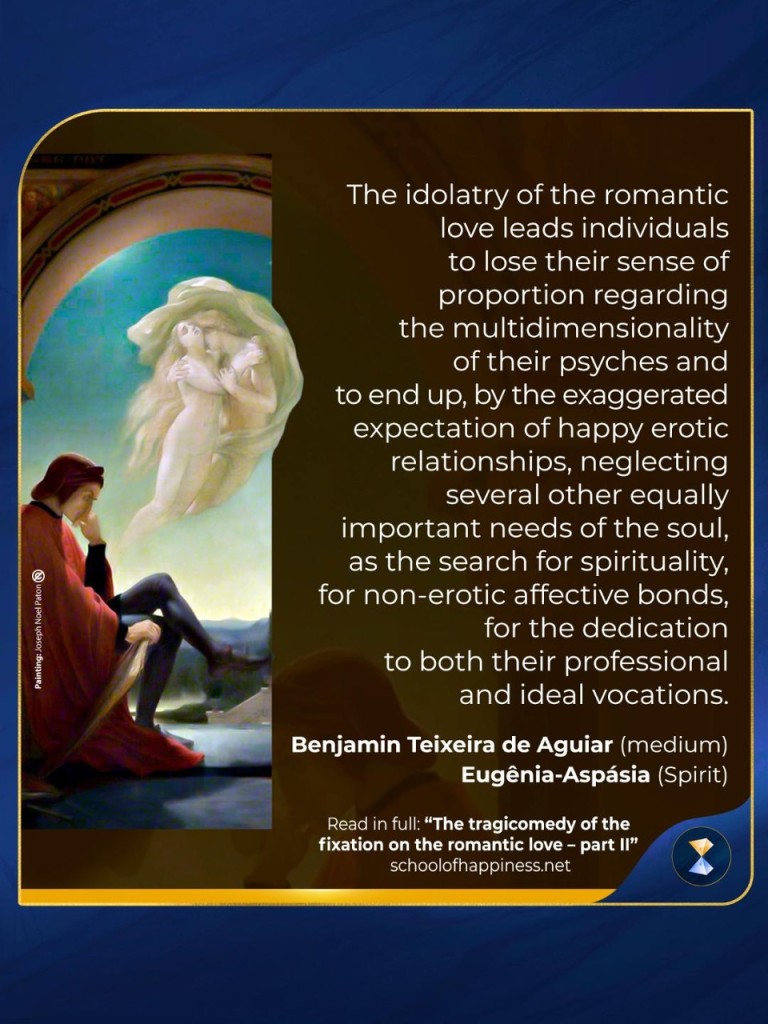Benjamin Teixeira ,
by the Spirit Eugênia,
Recently, the syndrome of those who “love too much” has been diagnosed, a name I believe to be inappropriate, since it is about, in truth, individuals who love erroneously, and, often, do not even love, just are dependent on the person they think they love, when they are not frankly tyrannical with the object of their pseudo-love, not allowing them, for example, the right not to want them in their intimacy, or to be able to be who they really are.
In lasting relationships — specifically conjugal relationships —, it is much more the affinity of values, goals and interpretative paradigms of reality that fuse the couple into a secure web of harmony and integration, capable of withstanding the clashes and challenges external to the (literal or symbolic) marriage. Thus, contrary to the illusions of culture, it is the similarities — and not the differences — that unite the consorts.
Overvalued by Hollywood (more recently), by the Romanticism movement (in 19th century world literature), with its genesis probably in the 12th century Troubadourism, the idolatry of the romantic love leads individuals to lose their sense of proportion regarding the multidimensionality of their psyches and to transfer to the expectation of happy erotic relationships several other equally important needs of the soul, as the hunger for spirituality (for God), the search for non-erotic affective bonds (such as friends and family), and the professional and ideal vocations. And the ironic and tragic result of this unfortunate obsession for affectionate sex is that not only does the person becomes frustrated in all the neglected areas of his/her life, because of the object of his/her affective compulsion, but he/she also eliminates the possibilities of achieving success in the conjugal sphere, since it suffocates the partner with a level of demands and pressures, declared or subtle, that end up consuming the relationship.
It is also important to consider, so that we may have a happy affective life, that the intimate partner, by the psychological exacerbation of the impulses of possession, desire and power, inextricably involved in the gears of romantic love, works as a kind of psychic mirror, showing both the unresolved, neurotic and malevolent issues, which we do not accept in ourselves, as well as the positive and ideal ones, potentials that appear to us portrayed, in an idyllic way, on the emotional image that we make of our partner. We thus see, next to it, what we are in depth, what we do not wish to be, what we can be, or what we will come to be.
In short: Do you want to be happy in your affective life? Be happy alone, first. Do you want to have a healthy romantic relationship? Be psychologically and spiritually mature first. Then, naturally and in every way, you will attract people and situations that are appropriate to your fulfillment, plenitude and bliss.
(Psychography by Benjamin Teixeira, on December 19, 2006. Reviewed by Delano Mothé).

